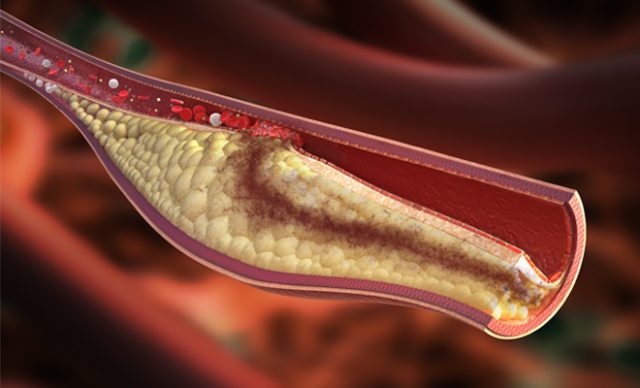Arteriosclerosis is a common disease in our days, which consists of the hardening of the walls of arteries. Preventing it is possible, so following research conducted by the specialist in internal medicine, Silvia Herrera we will give you the main facts about this disease and what to do to avoid it.
Other important data about arteriosclerosis
This disease occurs more frequently in those people who lead a lifestyle linked to sedentarism. Also believed to be a reaction of the body’s immune system, it is not spread between family members or from one child to another. Something that is important to mention is that between 80% and 90% of the cases of the disease occur among people who condition excesses to their daily diet; among them, abusing alcohol or fats.
We must emphasize that the disease is the main cause of heart problems in older adults. It is important noting that this disease is not contagious. Some evidence of them is not yet known. To carry out a respective diagnosis, the signs and symptoms of this disease are initially sought, for this an echocardiogram is usually made, highlighting that this disease is treated with drugs of only aggressive complexity.
What is arteriosclerosis?
It is the hardening of the walls of the arteries, which starts from an early age and is increasing as we get older, begins with an inflammatory reaction in the walls of the arteries to finish with its thickening and hardening, which produces a decrease in blood flow in the affected area.

What are the causes?
The main cause is associated with excess cholesterol. When the total cholesterol is high (hypercholesterolemia), it accumulates in the walls of the arteries forming plaques, hardening and thickening the arteries.
There are also risk factors that contribute to its appearance and evolution such as high blood pressure, smoking, lack of exercise (sedentary lifestyle), an inadequate diet with excess fat and excessive consumption of alcoholic beverages.
What are the symptoms?
Atherosclerosis itself does not produce symptoms, however in the clinical manifestation blood circulation is affected. If it is in the arteries of the heart that the patient presents chest pain to his left side also a pain in the chin or jaw, abdominal pain, dizziness, and sweating, depending on the severity, these symptoms may be announcing what is known as angina of chest or myocardial infarction.
If the affected area compromises the cerebral circulation, the feared vasculocerebral disease (CVD) is produced, which also depends on the severity of the blood interruption, being able to manifest hemiplegia (difficulty in mobilizing half the body), dysarthria (difficulty in emitting words), among others.
If the affected area is the lower limbs Peripheral Arterial Disease (PAD) occurs, which manifests itself with muscle pain in the legs when walking short distances. The most serious manifestation in this area is gangrene, usually starting with the toes. We could also name sexual impotence as an expression of erectile dysfunction if the blood vessels of the penis are affected.
How is it diagnosed?
Unfortunately the diagnosis is made when the disease is already present, however, it can be suspected in the presence of the aforementioned risk factors. There are also tests for clinicians who can confirm their presence as an echocardiogram, ecosonogram, arterial Doppler of the lower limbs and, finally, angiography.
What are the possible consequences?
The consequences are inherent to the formation and evolution of the plaque in the affected blood vessel, being able to interrupt the blood supply of an organ and therefore compromise its function.
What are the treatments?
The best treatment is in the preventive stage because the risk factors are mostly modifiable, for example, adapt the diet avoiding foods containing fat, adopt an exercise routine, quit smoking and avoid the intake of alcoholic beverages in excess. On the other hand be aware of the control of arterial hypertension because it helps the onset and the complication of arteriosclerosis.
When the disease is already present or in the advanced level, medications such as statins can be indicated that help to stabilize the plaques formed, also controlling cholesterol levels. Platelet antiaging agents are also used to prevent the formation of thrombi, such as acetylsalicylic acid, and clopidrogel. Depending on the results, the possibility of surgical treatment is evaluated.

